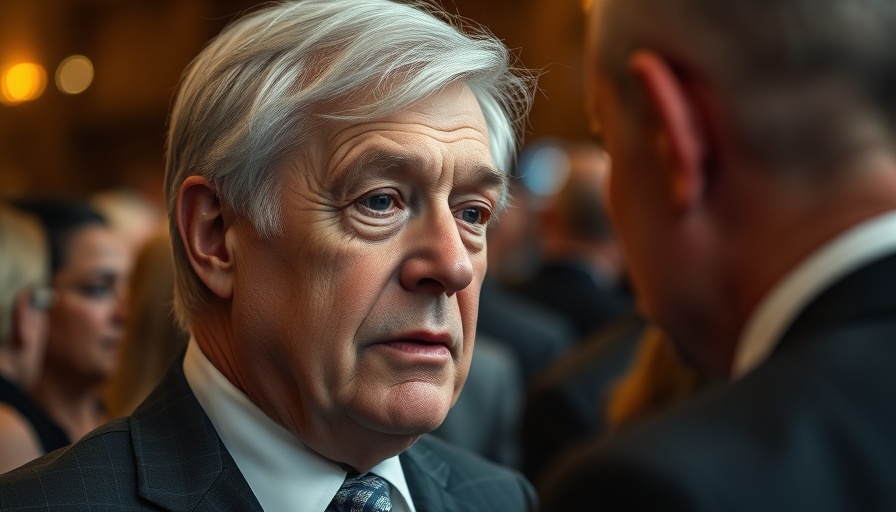
Trump's Tension with Allies: A Historical Perspective
As President Trump approaches the upcoming G7 summit, it's crucial to revisit his last attendance in 2018. That meeting marked a tumultuous point in international relations, where Trump called for the inclusion of Russia back into the group and expressed open disdain for traditional allies. This year, however, the rift seems to have widened further, with Trump taking a stance to reduce America’s military involvement worldwide while ramping up trade confrontations with key global partners. Analysts believe that this deepening divide poses not only diplomatic challenges but could also lead to far-reaching economic implications.
The Stakes of Trade: Can Trump Deliver?
At the heart of Trump's agenda for the G7 is the urgent need to finalize new trade agreements, given a self-imposed deadline of early July. His trade adviser previously indicated ambitious goals, suggesting that tariffs could facilitate up to 90 new trade deals within just 90 days. While preliminary agreements have been reached with the UK and China, fulfilling these promises remains an uphill battle. The resulting ambiguity might provoke further tariff increases, putting both the U.S. markets and its relationships with trading partners at risk, which were already strained by past negotiations.
The Legalities of Tariffs: What Lies Ahead?
Compounding the uncertainty around trade negotiations is the ongoing legal battle surrounding Trump's tariffs. Challenges in courts can affect the administration’s ability to engage in successful deal-making during this summit. Should legal restraints hinder the execution of new trade agreements, it could prompt Trump to adopt an even more aggressive tariff strategy, potentially unsettling the global market dynamics. A looming question persists: will Trump's legal and practical strategies align to support his ambitious trade goals at the G7?
Global Reactions: Allies and Adversaries Respond
The response from other G7 nations regarding Trump’s evolving approach has been mixed, with many leaders expressing concern over the fracturing alliances. Allies who benefited from U.S. military support previously feel the pressure from increasing uncertainty. Trump’s threat to annex the host area of the summit further fuels skepticism. Leaders such as Canada and Germany, who once relied on close cooperation with the U.S., are now considering alternative partnerships. This shift raises intriguing questions about the future of multinational collaborations in an increasingly multipolar world.
What’s Next? Future Predictions and Opportunities
Looking forward, the G7 summit presents both obstacles and opportunities. If Trump can navigate this contentious landscape successfully, it could reshape the global economic framework. However, experts suggest that failure to strike beneficial agreements could embolden adversaries and tilt the power dynamics further away from U.S. interests. Observers can't help but wonder how this will play out, particularly as the world watches to see whether global trade will remain tethered to U.S. policies or seek a new direction.
The Emotional Weight of a Fractured Alliance
For many observers, the rift within the G7 isn’t just about policies or trade; it embodies a deeper emotional conflict rooted in longstanding alliances. Citizens around the globe, especially in countries directly affected by these policies, face uncertainties that come with such disconnects. Many in allied nations are discouraged, concerned that their shared values and coordinated efforts in addressing global issues like climate change and security may falter in the wake of such a complex and evolving international landscape.
The Crucial Role of Informing the Public
In these turbulent times, it’s pivotal that citizens remain informed. Understanding the intricacies of international summits like the G7 not only enriches public debate but empowers individuals to engage with domestic and foreign policies. Staying updated on developments provides a foundation for responsible civic dialogue and inspires citizens to influence changes in policies that affect their lives and futures.
 Add Row
Add Row 
 Add
Add 


 Add Row
Add Row 
 Add
Add
Write A Comment